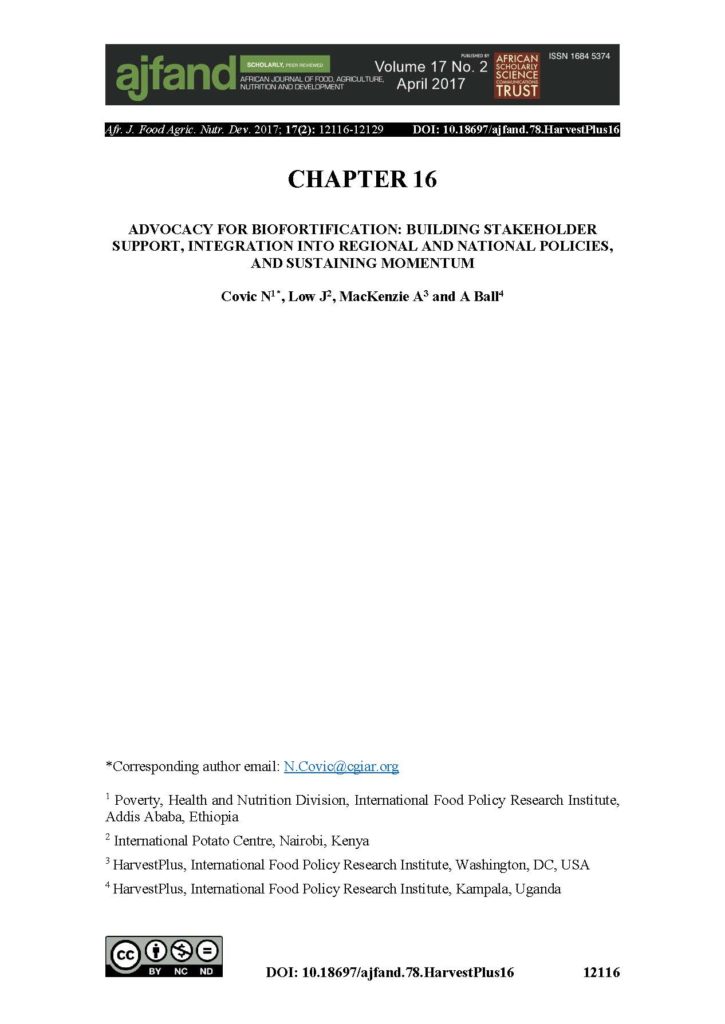Africa as a continent faces high prevalence of micronutrient deficiencies such as vitamin A, iron, and zinc. Biofortification offers a dietary agriculture-based strategy that has shown potential to address selected micronutrient deficiencies. This chapter describes how advocacy for biofortification by HarvestPlus and its partners has been structured, including a mix of evidence generation and sharing, stakeholder mapping, promotion to change attitudes, and efforts towards establishing Codex Alimentarius standards for biofortification. In addition, a review of African Union, Southern African Development Community, and country-level strategic policy documents on how biofortification is reflected in such documents for four country case studies, Ethiopia, Mozambique, Rwanda, and Zambia was conducted. The momentum that has been built for biofortification on the continent is in part attributed to salient advocacy that HarvestPlus and its partners have used to promote investment in biofortification and adoption by countries, to the extent that the original skepticism has dissipated and biofortified crops have been released in at least 22 African countries with plans for release in additional countries. Considerations and recommendations are suggested to inform the development of advocacy strategies at country, regional, and Africa continent levels, aimed at sustaining and accelerating the momentum for biofortification.
Advocacy for biofortification: Building stakeholder support, integration into regional and national policies, and sustaining momentum
Citation: Covic, N.; Low, J.; MacKenzie, A.; Ball, A. 2017. Advocacy for biofortification: Building stakeholder support, integration into regional and national policies, and sustaining momentum. African Journal of Food, Agriculture, Nutrition and Development. ISSN 1684-5374. 17(2):12116-12129.
2018-04-02
BIOFORTIFICATION, NUTRITION
Central Africa, Southern Africa
Mozambique, Rwanda, Zambia
journal_article

